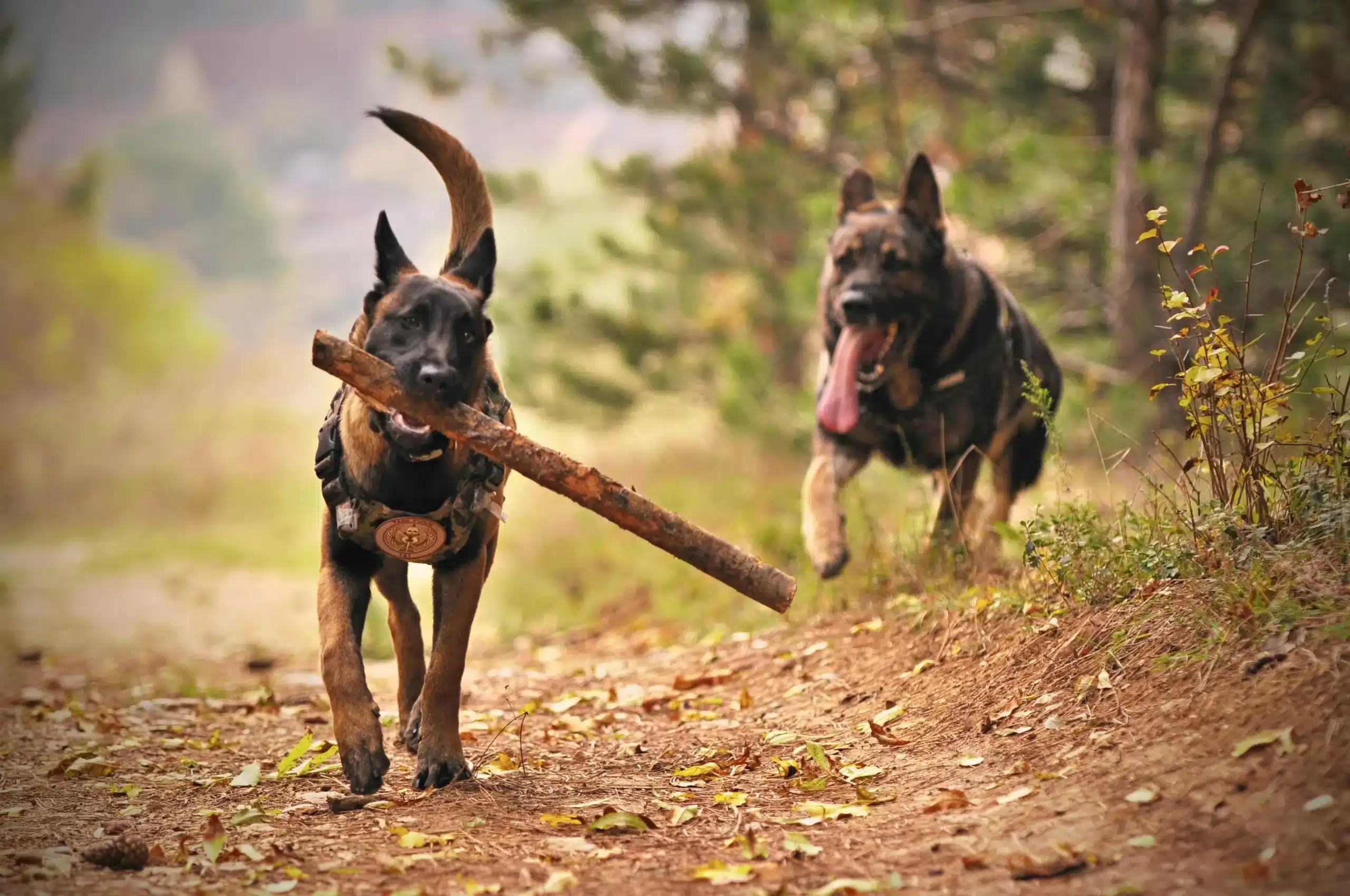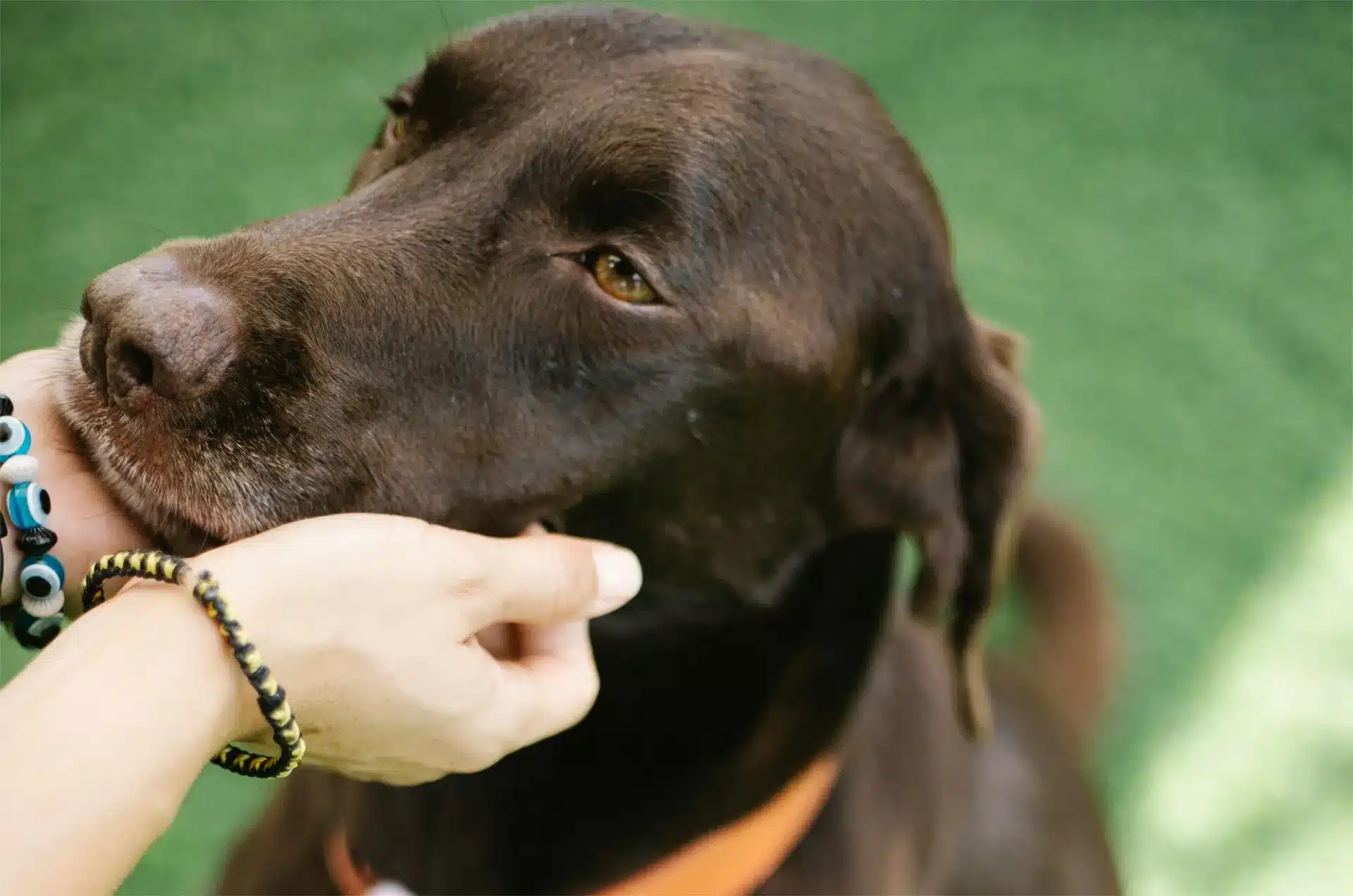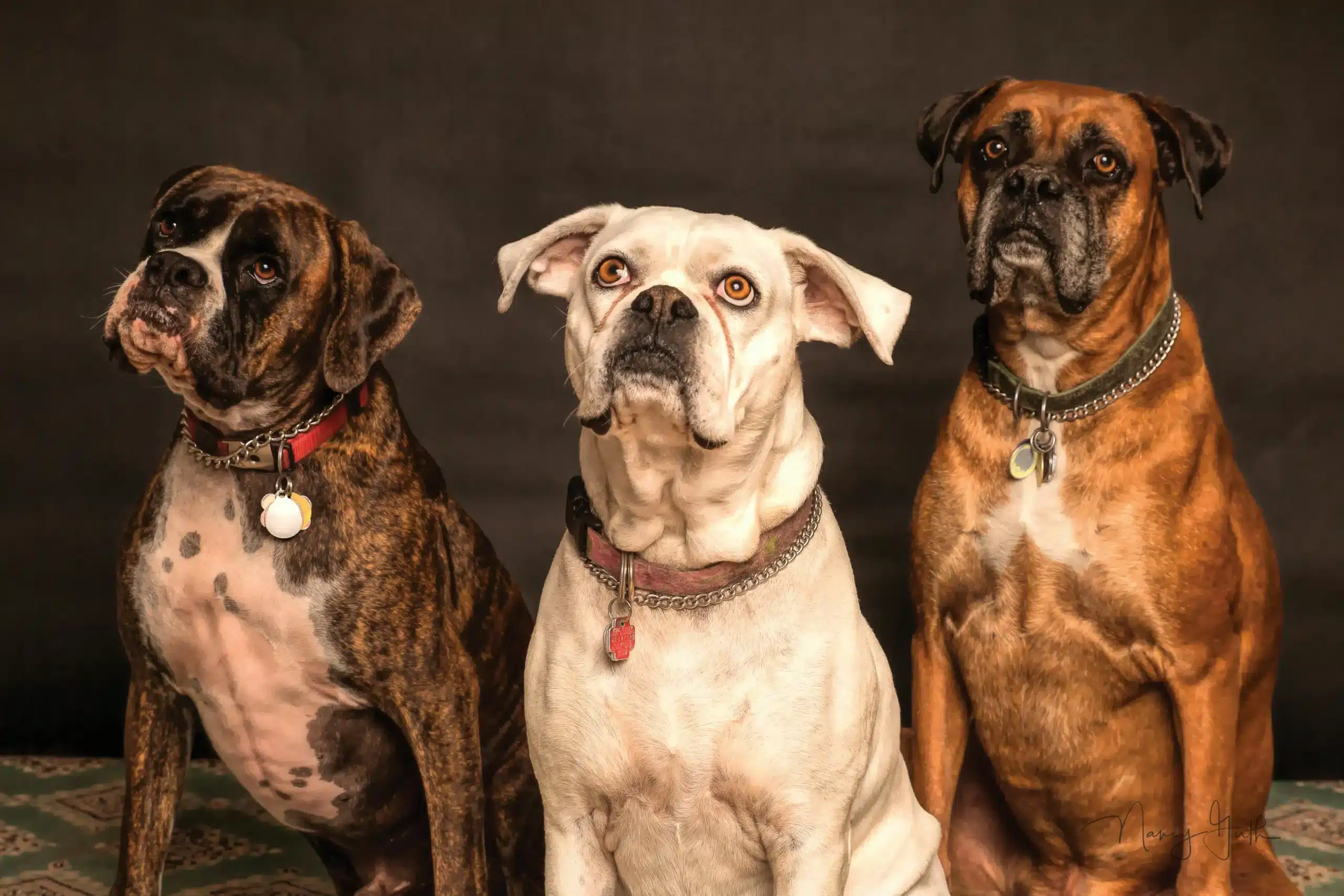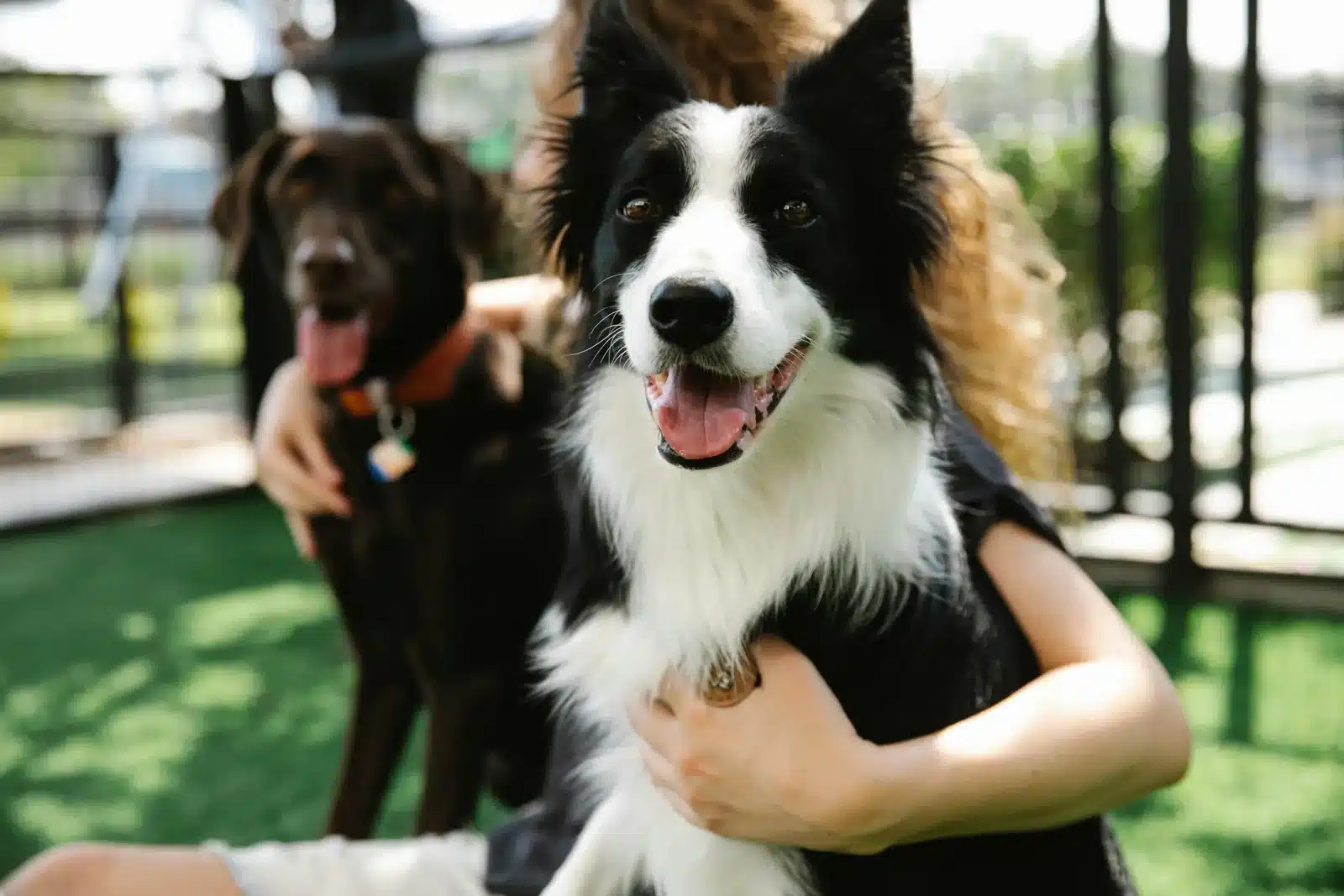Blog How to Choose the Right Dog Trainer: Qualifications, Experience, and Compatibility
Whether teaching a dog basic obedience or advanced training techniques, a top dog trainer makes a difference; even people with years of experience handling dogs benefit from professional dog trainers who help hone their abilities and troubleshoot problems.
How do you find the right dog trainer? Dog training is an unregulated industry, and it’s essential to evaluate trainers before trusting them with a pet.
How Do You Know if a Dog Trainer Is Good?
Ask the trainer about their training techniques and philosophy. Look for one that uses positive reinforcement training sessions. These sessions reward dogs for appropriate animal behavior with praise or treats and teach behavior modification to replace inappropriate behaviors.
The techniques are science-based training methods. They strengthen the bond between pet parents and dogs and foster a love of learning in dogs. It is essential to determine your needs from a dog trainer. Do you need a puppy to learn to ‘stay’ and ‘sit,’ or do you want to address unwanted behaviors with problem behavior modification?
Find out if the trainer offers private training sessions or classes that meet the dog’s needs. Trainers provide different services. Typically, a class environment provides the benefits of distraction training and socialization.
Some dogs learn best one-on-one, mainly if other dogs make them anxious or overstimulate them. Private training takes place at a training facility, at home, or out in public. However, the choices are ideal for your specific dog’s issues.
Some dogs are not ready for a classroom, and others only have problems at home. If a dog trainer offers services outside their facility, expect to pay more.

How to Find a Dog Trainer Perfect for Your Dog
Ask a certified dog trainer about their education and credentials. Some trainers learn through years of experience and apprenticeships, while others develop their skills more academically. A certified professional dog trainer with credentials from organizations such as the Certification Council of Dog Trainers is not mandatory. Still, it shows an interest in continuing education and dedication to the profession.
Before deciding, talk to the dog’s behavior trainer to familiarize yourself with its personality. It is not enough to visit a website or read a brochure. Dog trainers train people; you want to feel comfortable being their student. Look for a dog trainer who also uses positive reinforcement with pet parents.
A pet trainer should be respectful, encouraging, and patient. Observe a training class. Watch the students and dogs to ensure they are enjoying themselves. Ask former students for references. Look for a dog trainer providing more than basic training techniques.
Humans and dogs view the world differently. The more you understand a dog’s perception, the better equipped you will be to live happily together and meet their needs. Training lessons include information about dog body language, communication, and behavior.

Socializing is vital for a puppy class, and advice on handling and grooming is a perk. Excellent trainers understand their job is to train pet owners to train their dogs. To begin, they may work with one person. The entire household, including children, should be welcome at some point in the training process.
There are places to get recommendations for a good trainer, too. An excellent choice is Very Important Paws. Ask a knowledgeable neighbor or people at the dog park for recommendations. The American Kennel Club (AKC) has a list of approved Canine Good Citizen (CGC) evaluators.
Other sources are the Certifications Council for Professional Trainers and the Association of Professional Trainers. You want the right trainer for both you and your dog.
A great trainer is a wise investment, helping ensure a lifetime of harmonious and happy living with a well-trained dog.
Contact Very Important Paws for all your dog training in Palm Beach County, Florida today!
Questions to Ask a Potential Dog Trainer
It is suggested that open-ended questions be asked to allow a trainer to explain their philosophy in depth. Include questions like the following to determine if a particular trainer is the one for your dog:
- What training methods do they use?
- Is their educational background in dog training and behavior?
- What recent continuing education have they attended?
- What equipment do they use?
- What kind of follow-up about a dog’s progress do they provide clients?
- Can they provide a list of references?
- Do they belong to any professional organizations?
- What credentials or specialized dog training certifications do they have?
- What services do they provide?
- Do they provide specialized services, such as service dog training, competitive sports training, or therapy dog training?

What Is the Number One Rule in Dog Training?
When choosing a trainer, the most important thing is finding a trainer using reward-based methods called humane training, force-free, or positive reinforcement. Seeing those terms on a website does not guarantee they use those methods.
Reward-based training involves giving or withholding a reward to make a behavior more or less likely to occur. Using rewards to increase behavior frequency is positive reinforcement.
Trainers who use the technique refer to themselves as positive reinforcement dog trainers. Others refer to themselves as humane or force-free trainers to distinguish themselves from trainers using aversive techniques like alpha rolls, leash corrections, prong collars, choke chains, or electric shock.
Food is the best reward, but there are other rewards, like play. Food is efficient, faster to deliver, and better for most training scenarios. When teaching a dog to stay or sit, playing encourages them to jump out of the position.
All dogs love food, so you want to find a dog trainer who uses food. However, there are risks to using aversive methods. They include making a dog fearful or aggressive. Aggression cases are serious problems that take a long time to overcome, if at all. Even a dog on a special diet can be rewarded with something tasty to motivate them.
Trainers to Avoid
Trainers sometimes claim to use positive reinforcement but do not. They know two things—the dog training industry is not regulated, and positive reinforcement is in demand. If a trainer refers to their techniques as ‘balanced training,’ it is a clue that they also use ‘corrections’ or punishment. Balanced dog training is not good.
A trainer who uses the term ‘cookie pushers’ with a negative connotation or says they train without food should be crossed off the list of potential dog trainers. When you read through customer testimonials that refer to a shock collar or an online shop on the trainer’s website that sells shock collars, consider it one of the red flags.
There is no scientific proof that shock collars are more effective than reward-based training. Their methods must be updated if a trainer mentions a pack, alpha leader, or dominance. If a dog trainer asks you to do something you feel is wrong, do not hire them.

Choosing Between Private Lessons and Classes
You may already know whether you want private lessons or attend dog training classes. There are some things to consider. A puppy class is typically the best option for puppies. A study comparing one-off parties to a six-week class found results were better with the six-week class.
If you choose puppy parties, it is recommended that you sign up for several to get more play and socialization with other puppies. No adult dogs should attend a puppy class, which includes socialization and basic obedience exercises.
Puppies should have the opportunity to engage with other puppies. A good class separates boisterous puppies from shy ones to prevent anyone from becoming overwhelmed. Some dog trainers offer private sessions for puppies.
Because socialization is essential, ensure the right trainer includes socialization or do it yourself. Good dog trainers explain the importance of socialization.
Adult dog classes typically cover basic obedience and continue to advanced training levels, including Canine Good Citizen certification. Some trainers offer reactive dog classes. If these are tempting, ensure the class is small, and your dog does not find it challenging to be close to other dogs.
Many people enjoy meeting other dog owners and their dogs and the social atmosphere of classes. Small classes are usually better. Typically, there is one or more assistants to help a trainer.
Very Important Paws in West Palm Beach is here for you!
Conclusion
Choosing the right professional trainer is critical to a dog’s health and well-being. To summarize what makes a qualified dog trainer, choose a dog trainer that –
- Uses food to train dogs
- Has educational qualifications
- Is a member of a professional organization
- Participates in ongoing continuing education
If you see red flags, keep looking. Your dog deserves nothing less than certified trainers like the trainer at Very Important Paws. If you want more information about dog care and dog training to help you make an informed decision, click here for a reading list of books on the subject, or contact us here at VIP!
Contact Very Important Paws today in Palm Beach for all your dog boarding, hotel, daycare, grooming, and training needs.

